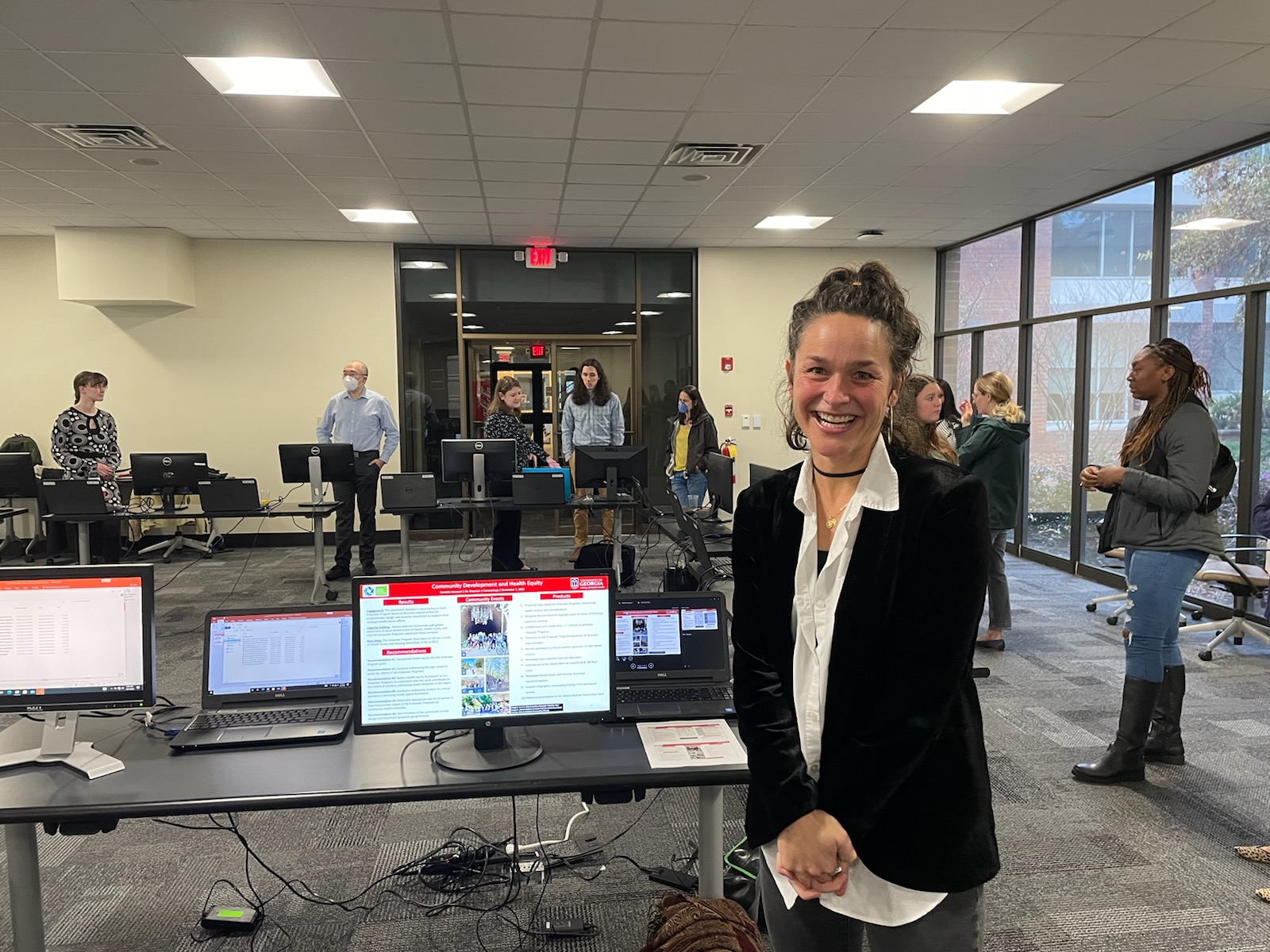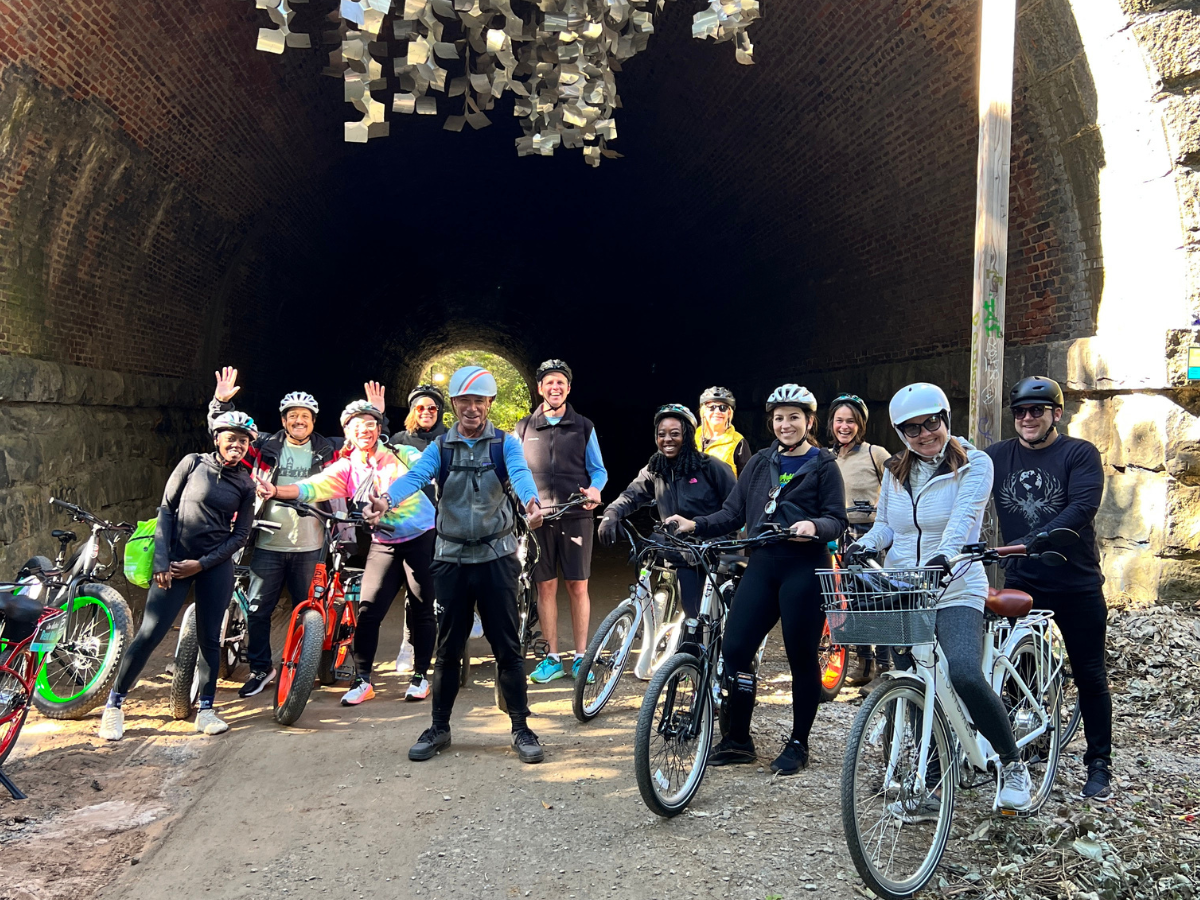Atlanta was once a hub for railroad transportation until the 1980s, when the rail lines that circled and connected the city’s in town neighborhoods were largely abandoned. Over twenty years later, a project was proposed to transform the old tracks into walking paths and green space. By 2030, that project, the Atlanta BeltLine, will be a complete 22-mile loop of trails and parks.
“Rails to trails” projects like the BeltLine have been popular in many cities looking to create outdoor community spaces and drive economic development. In addition to offering a safe space to walk or bike, a number of studies have shown that public access trails can be profitable for cities.
Before long, new restaurants and businesses had popped up along the BeltLine, followed by a demand for new, often luxury, housing, dramatically changing the landscape of the neighborhoods it passed through.
“When you’re working with community development and development in general, you continue to learn the full impact of the change decades later,” said Danielle Amarant, a long-time community planning and development worker.
Property tax increases in neighborhoods near the BeltLine meant that some people were unable to afford their houses anymore, and some families were displaced due to increased rent prices.
These challenges largely impacted older adults along the BeltLine.
The BeltLine saw the need to prioritize health equity in their practices, and that’s where Amarant brought her past experience and the skills she built during her graduate training at the University of Georgia College of Public Health to the table.

Danielle Amarant earned her master of public health (MPH) with a concentration in gerontology in Fall 2022.
“As somebody who has worked in community planning and development in the past, housing is really a passion of mine. I started to see this trifecta of health, aging and housing,” said Amarant, who earned her master of public health (MPH) with a concentration in gerontology in Fall 2022.
As the capstone to her coursework, Amarant interned with the Atlanta BeltLine Partnership to help bring a health equity lens to the organization’s Empower programs, which the Partnership designed to address the disparities created by the BeltLine.
Health equity is generally defined as everyone having a fair opportunity to be as healthy as possible. Poverty, lack of housing and healthcare access are barriers to health equity, says Amarant.
Amarant’s project had three key goals: to evaluate the impacts the Partnership’s current program interventions have on resident health, to help Partnership members develop an understanding of health equity concepts, and to develop measures to improve their programs.
“I developed a logic model to assess what they’re doing now, and what their short-term, midterm, and long-term goals seem to be. Then, I wove through health considerations for each program and how what they’re doing now could impact health,” said Amarant.
Amarant’s logic model and educational materials are being used to establish goals for the Empower programs that incorporate health equity within the communities they serve. Implementing these goals, however, will take time and require funding.
“The Beltline’s challenge and the Empower program’s challenge is – how do you pivot to sustain your existence, to sustain the programs you’re delivering because they will be needed beyond 2030, when the BeltLine is set to be finished. The story doesn’t end when the BeltLine is built; it continues, and the needs will continue,” said Amarant.
– Chancey Phillips
Posted on March 20, 2023.







